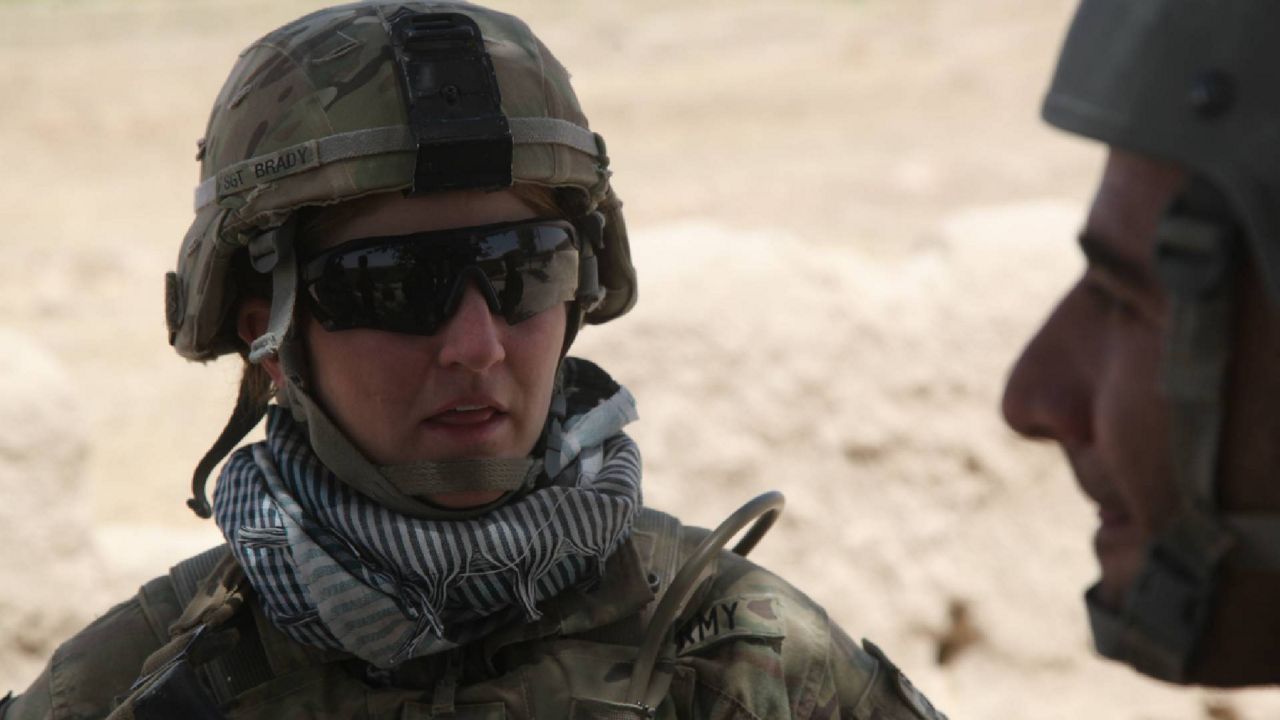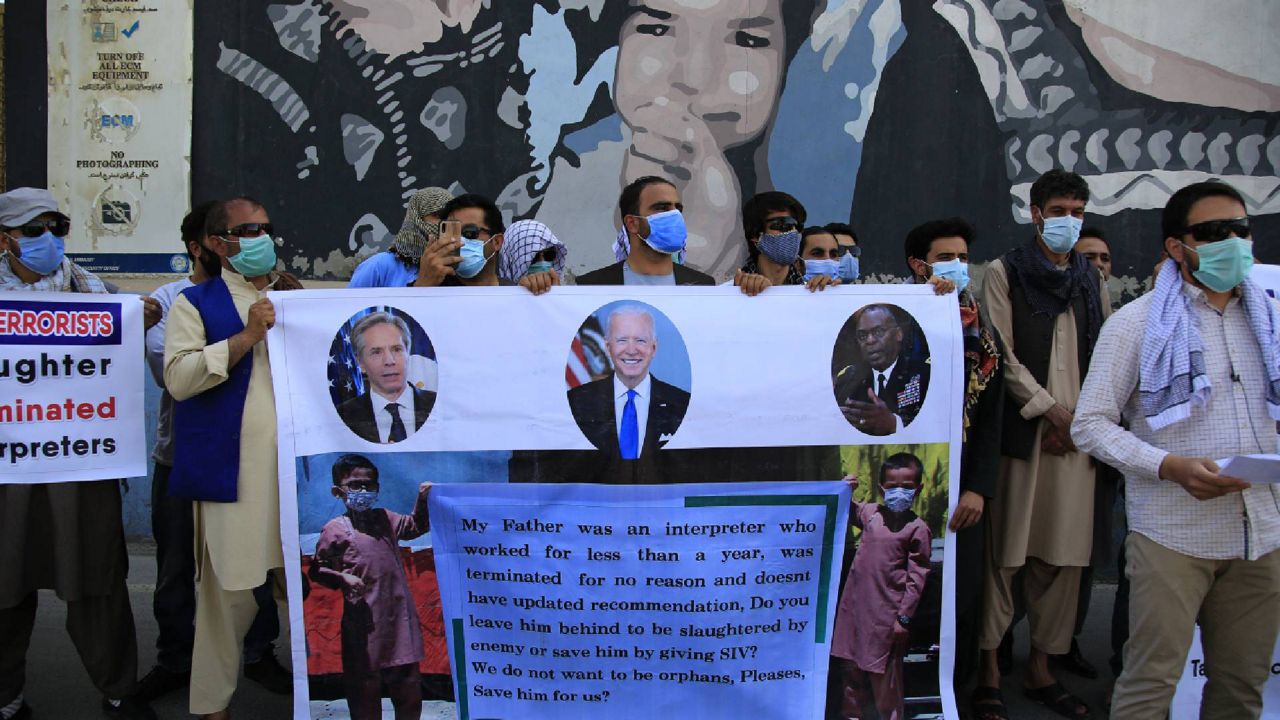Lawmakers introduced a bill late Tuesday that would allocate 4,000 more visas for Afghan nationals who aided in the U.S. in combat, many of whom face death threats from the Taliban for their work to this day, legislation first reported by Spectrum News last month.
The visas would add to the Special Immigrant Visa (SIV) program, a pathway to safety set up by Congress to bring Afghan interpreters and others who worked with Americans to the United States.
In recent months, lawmakers and advocates have sounded the alarm on behalf of SIV applicants as the U.S. begins withdrawing from Afghanistan, potentially leaving a security vacuum and little protection for SIV applicants.
The new bill, called the Afghan Allies Protection Act, is led by Rep. Adam Kinzinger, R-Ill., who served in both Iraq and Afghanistan and Rep. Earl Blumenauer, D-Ore., both longtime advocates for the SIV program.
“While we may have differing opinions on the withdrawal from Afghanistan, we can all agree that it would be wrong to abandon the Afghan men and women who supported the U.S. mission for nearly two decades—doing so would essentially hand them a death sentence,” Rep. Kinzinger said in a statement.
Congress typically approves 4,000 visas annually for Afghans as part of the defense budget, though the U.S. hasn’t processed that many for several years. There were nearly 11,000 unused SIVs as of the State Department’s latest report and more than 18,000 Afghans waiting.
The SIV program has faced years-long delays in processing since its inception. On average, it currently takes nearly three years for an applicant from start to finish, despite a Congress-mandated deadline of nine months.
“While our legislation will provide additional life-saving visas, more needs to be done to clear the backlog at the State Department before the United States withdraws,” Rep. Kinzinger said.
In recent weeks, the State Department has added staff both in Kabul and in the U.S. to process more SIV applications, a spokesperson said, and they expect to show progress in their next quarterly report.
Despite its delays, the SIV program has always had firm bipartisan support in Congress and among different administrations. Last month, a group of lawmakers wrote a letter to President Joe Biden urging attention to the program as the U.S. begins its withdrawal from Afghanistan.
But advocates and lawmakers have called on the Biden administration to do more than process visas. Many have pushed for a mass evacuation of Afghan allies to a territory like Guam in order to bring them to safety, especially since the U.S. military may exit Afghanistan as early as July, according to reporting by the New York Times.
“Any strategy that the administration has to have is visas plus evacuation,” said Chris Purdy, who works on the SIV program at Veterans for American Ideals.
“At the end of the day, if this doesn't happen, then a lot of people are going to die. And so it's incumbent on us to do everything we can to make it happen,” he added.
Congress may end up allocating more visas than the 4,000 proposed by Reps. Kinzinger and Blumenauer this week.
In a letter to President Biden last week, Senators Jeanne Shaheen, D-N.H., and Joni Ernst, R-Iowa, called for 20,000 additional visas.
In the meantime, the Afghan Allies Protection Act is expected to move forward on Capitol Hill.
“Over the past two decades, tens of thousands of Afghan allies have put both their lives, and the lives of their families, on the line to help our country. In return, we promised them safety and a new life in the United States,” Rep. Blumenauer said in a statement Wednesday. “This legislation to keep the SIV program alive is part of how we keep this promise.”





